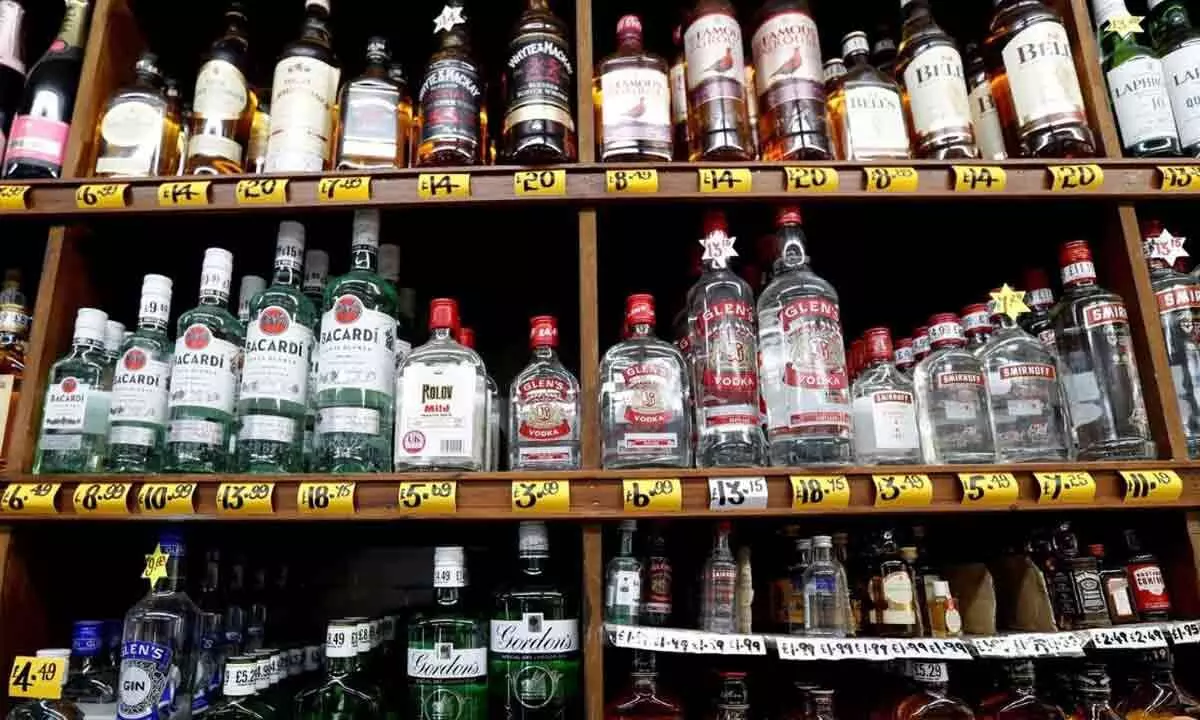Delhi Government Extends Excise Policy: Impact On Liquor Trade And Future Plans

- 1. The Delhi government has decided to prolong the existing Excise Policy by six months.
- 2. Learn how this extension affects the liquor trade and why a new policy is still pending.
The Delhi government has decided to extend the current Excise Policy for an additional six months. An official announcement will be made by Friday, instructing license holders to renew their licenses on a pro-rata basis. This extension proposal was presented to Chief Minister Arvind Kejriwal and subsequently forwarded to the Lieutenant Governor for approval. The Lieutenant Governor has given the green light to this policy extension by endorsing the file with a "seen" remark.
With this policy extension, private liquor shops will remain prohibited from operating vends. Similar to the previous arrangement, only government-owned vends will be allowed to operate in Delhi, managed by the four government corporations: DTTDC, DSIIDC, DCCWS, and DSCSC.
To provide context, the government had initially introduced a new policy but later reverted to the old policy, with the stipulation that only government vends could function in the capital. The old policy, which is currently in effect, is set to expire on September 30. Over the next six months, the excise department will dedicate its efforts to formulate a new Excise regime for the upcoming fiscal year, 2023-24. This extension provides additional time for the department to develop and implement the new policy effectively.
Meanwhile, the announcement regarding the extension of the current excise policy will be officially issued on Friday. Traders who wish to continue their excise-related businesses will be invited to apply for license extensions under the same terms and conditions. They will be required to pay an additional license fee on a pro-rata basis for this extension. An unnamed official provided this information.
Another official noted that since both the government and the Lieutenant Governor have approved the policy extension, it is highly unlikely that there will be any disruptions in the supply of liquor in the capital. The official also mentioned that traders will be granted extra days beyond the initial deadline of September 30 to renew their licenses, ensuring a seamless supply without interruptions.
Delhi currently has 628 retail liquor stores, none of which are privately owned. All these retail liquor outlets are operated by four Delhi government corporations: Delhi State Industrial and Infrastructure Development Corporation (DSIIDC), Delhi Tourism and Transportation Development Corporation (DTTDC), Delhi Consumer’s Cooperative Wholesale Store (DCCWS), and the Delhi State Civil Supplies Corporation Limited (DSCSC).
To provide some background, the Delhi government introduced the 2021-22 excise policy on November 17, 2021, with the aim of rejuvenating the city's liquor business. However, this policy was later scrapped on September 1, 2022, and replaced by the previous 2020-21 regime following a recommendation from Saxena for a Central Bureau of Investigation (CBI) probe into alleged irregularities in the new policy.
Subsequently, excise officials were tasked with developing a new liquor policy for the city, originally intended to be ready by September 2022. However, as of now, the new regulations have yet to be finalized, with officials emphasizing the delicate balance between revitalizing the liquor industry while staying within legal boundaries.
Until a new policy is formulated and approved, the existing 2020-21 policy has been extended multiple times, first in February (until March 31), then in March (until September 30), and now in September (until March 31, 2024).
Vinod Giri, the director-general of the Confederation of Indian Alcoholic Beverage Companies (CIABC), welcomed the extension of the current policy but expressed concerns about its overall impact on the liquor business, indicating that the present regime may not be conducive for business growth.
















